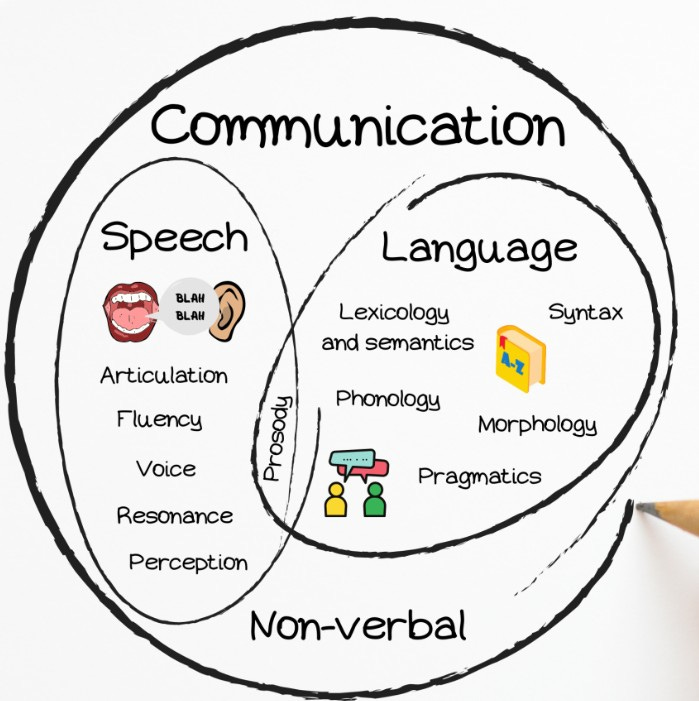Make a name for ourselves
The spiritual nature of language
A couple of things stand out in the story of the tower of Babel. In the first place, did they really think they could reach to heaven with a brick tower? Wouldn’t it have quickly become obvious that heaven was overreach? Perhaps, then, they were just interested in building something monumental to “make a name for themselves”. That seems to have been the abiding sin and not the act of climbing to Heaven. Pride. I can relate.
Jordan Peterson (a personal hero) has given interesting commentary on the Tower of Babel concentrating on the utopian pride inherent in joining earth to heaven. Such hubris and its consequences are certainly a big theme in the Bible and particularly in the Book of Genesis.
But, to me, the most interesting aspect of the story is the punishment meted out to the miscreant rascals – their language was distorted into dialects that were incomprehensible to those outside the tribe. Unable to communicate, they were no longer able to work together on that which would make them a name. It was not an intuitive solution to their pride.
Language has long been a fascination to me. Which is odd because I come from, and am patterned by, a long chain of men who prior to age 14 would not shut up and after age 14 would not talk. Most of my experience with language takes place internally, in the dank recesses of my cranium where I can never seem to turn the machine off. And now you must suffer some of those echoing thoughts.
Three decades ago, my long-suffering wife allowed me to work a job rotation in Peru. For two years I was in Peru more than I was at home. My employer asked for volunteers who could speak Spanish. I knew how to spell Spanish and that, in my mind, was qualification enough. It was also enough for management who gave me the job. I suspect that I was selected because no one else applied. I was it. To remedy the fact that I could not speak the language, I found room and board with a young Peruvian family hoping to learn at least “pass the salt”. Even this was not to be as they ate with her parents and I sat each evening, alone in the kitchen, eating my rice and beans. Then I spent the evening talking with my landlord’s grandmother and giving her a headache with my broken Spanish. So it worked out in the end.
Most of my education in Spanish came from laboriously writing paragraphs and then essays with dictionary and bescherelle at hand and having my secretary correct things for me. As a result, my syntax is not identifiably Latin and I sound like Google translate. As my ability in Spanish slowly improved I noticed a very strange, recurring situation. When I went to church my apprehension of the language and even my elocution improved dramatically. It was like the language settled on me more comfortably than in a business situation. I certainly had more practice and a larger vocabulary in a business setting but in church, I listened to and understood the sermons without the tension and stress of trying to follow a conversation in a business meeting. It was very odd. I joked that, when speaking the language of the angels, it should come as no surprise that the words come more easily in the presence of the angels. On Sundays, my Spanish was the language of a champ. “Why?” I wondered.
I mentioned this to a Peruvian friend (and spiritual mentor), and he agreed with me that such a phenomenon could happen and had, in fact, happened to him. He was from a prominent family, and his uncle was the Archbishop of Lima. Yet he lost his faith and set out on a quest to find it again. His quest took him to Germany to learn that language (which is decidedly not the language of angels) and, in his time there, he attended mass in Berlin. Like me, he said that every Sunday, he was a champ at German and wondered why his facility with the language improved so dramatically at church. He also told me of a dramatic conversion experience during one particular mass, and he partially credited the experience to his unusual language facility while at church.
In an unrelated yet quite funny continuation of his quest, he left Germany as a confirmed Catholic and decided to take rabbinic training in Israel. In his four and a half years at yeshiva he learned Hebrew and had acquired a very impressive library of books in that ancient language. Sadly, he was unable to complete the five-year program because his supervisor suggested that he would have to convert to Judaism to become a rabbi and when might he want to complete the ceremony? He responded that he saw himself as being both Jewish and Catholic at which point he was asked to leave. It strikes me now that perhaps his ambitions were as much an overreach as the bricklayers of Babel.
What to make of this strange phenomenon which positively ties language facility to a spiritual exercise. A sample size of two is not very convincing. In fact, though, there is a considerable body of scientific investigation into this phenomenon and there are even peer reviewed papers attempting to create a pedagogy for second language training using spiritual prompts. To me it makes a lot of sense.
The opening words of the Bible describe the creation of the world as it was given to Moses. On 13 occasions God either “said” or “called”. Language was vital to setting the universe in order. First God said and then he arranged and placed and formed and saw and blessed and pronounced “It is good”.
Finally God said, “Let us make man in our image, after our likeness…” With what aspects of God’s image and likeness might we be imbued? After all this saying and calling by God, surely we resemble God in our language. It is an attribute shared by both men and women, appearances to the contrary. And it is a characteristic not shared by animals except to a very limited extent and certainly not by machines however they might coo at us and encourage our inherent, suicidal impulses.
In an unmistakable parallel passage to Genesis 1, John’s gospel describes Jesus using the words of language. His first sentence assigns to Jesus the title “Word” three times. Jesus was the Word of God and was, in fact, God. Imagine John, writing in the twilight of his years, trying to make sense of the remarkable intersection of his life with that of the incarnate God. He could have used almost any metaphor to describe Jesus but the one he lands on is that of language. Perhaps that is the result of spending every day for three years “in church”. Language is a porthole into the spiritual realm because we are made in the image of the author of language. Maybe.
Scientists have long explanations of which areas of the brain light up when we speak and have concluded that the Broca’s area of the brain is the center of speech production and that it coordinates and integrates input from several other interconnected areas of the brain from both the right and left hemispheres. If we read these anatomical explanations quickly enough we might conclude that this seems about right and there is nothing too complex going on. But what causes the affected areas of the brain to “light up”. Yes, yes electro-chemical responses but how did that happen? And is the ability to use speech the same as the ability to use language?
According to Brainly.com, speech is the act of producing sounds to articulate words, while language is a broader communication and action system that includes speech, writing, body language and signing. It is the underlying system that gives meaning to the thoughts we think via the sounds we produce. We use language to produce change using the medium of speech. And the changes go well beyond mere communication as this graphic from speechneurolab.ca demonstrates.
We don’t need a Venn diagram to understand this interconnectivity and its spiritual dimensions. Universally, we can reflect on how we were raised.
“And Dad said, ‘Let there be silence!’ And there was silence, and it was good.”
Dad first had to have a word for silence to then proclaim and define it. Note also that, to the extent that our fathers were a proxy for God, the source of the language also touches on the spiritual realm. It might explain the problems experienced by societies in which young men and women grow up without a father.
Like consciousness, language is a very complex phenomenon that is not well understood regardless of what might be claimed by scientific papers. And like consciousness, I believe there is a spiritual dimension to how it all works. That is why going to church is a good thing to do when learning a new language. It is why I write these substacks. The process of writing is, for me, the pathway to synthesizing, integrating and making sense of the inputs from the world around me. This is not an argument for the correctness of my conclusions, but it is the necessary process because hearing alone or reading alone is insufficient to understanding or acting.
But so what?
At the very least, if you want to learn a new language you might give some consideration to adding a spiritual exercise to your life as a way of speeding the process. But more important to geezers like me is the need to recognize the remarkable spiritual substrate that informs what appears to be the banalities of life. Who thinks about the intersections of speech, language, communication and action? Those are things that just are. But my declaration is that they just are, because they are gifts given to us by virtue of being made in the image of God. I can find no satisfactory mechanistic or electro-chemical explanation for language proficiency in church and I don’t think it is for want of trying. Go ahead and wave your arms; neither will you be able to find such an explanation.
Here is the so what.
In an era of governments curtailing speech rights, we do well to consider the implications of forced speech before we sign on to anti-hate laws and internet restrictions and blind belief in the immanent consciousness of large language models.
Language is necessary to thought. If we can’t think of an idea in terms of the symbology known as language then we can’t think of an idea. We need the words “bowling alley” to think about going bowling. Solitary confinement works as a punishment because humans need to speak and be spoken to. Speech defines our humanity and without it we go insane. Do some research on maladaptive cognitive processes and then reread Orwell’s 1984.
Do we really want our governments to attack such a fundamental part of our nature as image bearers of a communicating God? I don’t think these attacks will ultimately work but they will do irreparable harm in the meantime. Is this what we want? Jordan Peterson is a hero to me because he fought against Bill C-16 which was a law to force speech. We will do well to pick up his torch.



God insisted that the second generation of the exodus from Egypt, take “The Promised Land” by force. Yet they would have been unable to do so without God.
This is where we all dance, on the invisible line between God’s sovereignty and man’s responsibility.
Seems like leaning a new language needs to inhabit the same rhythms.